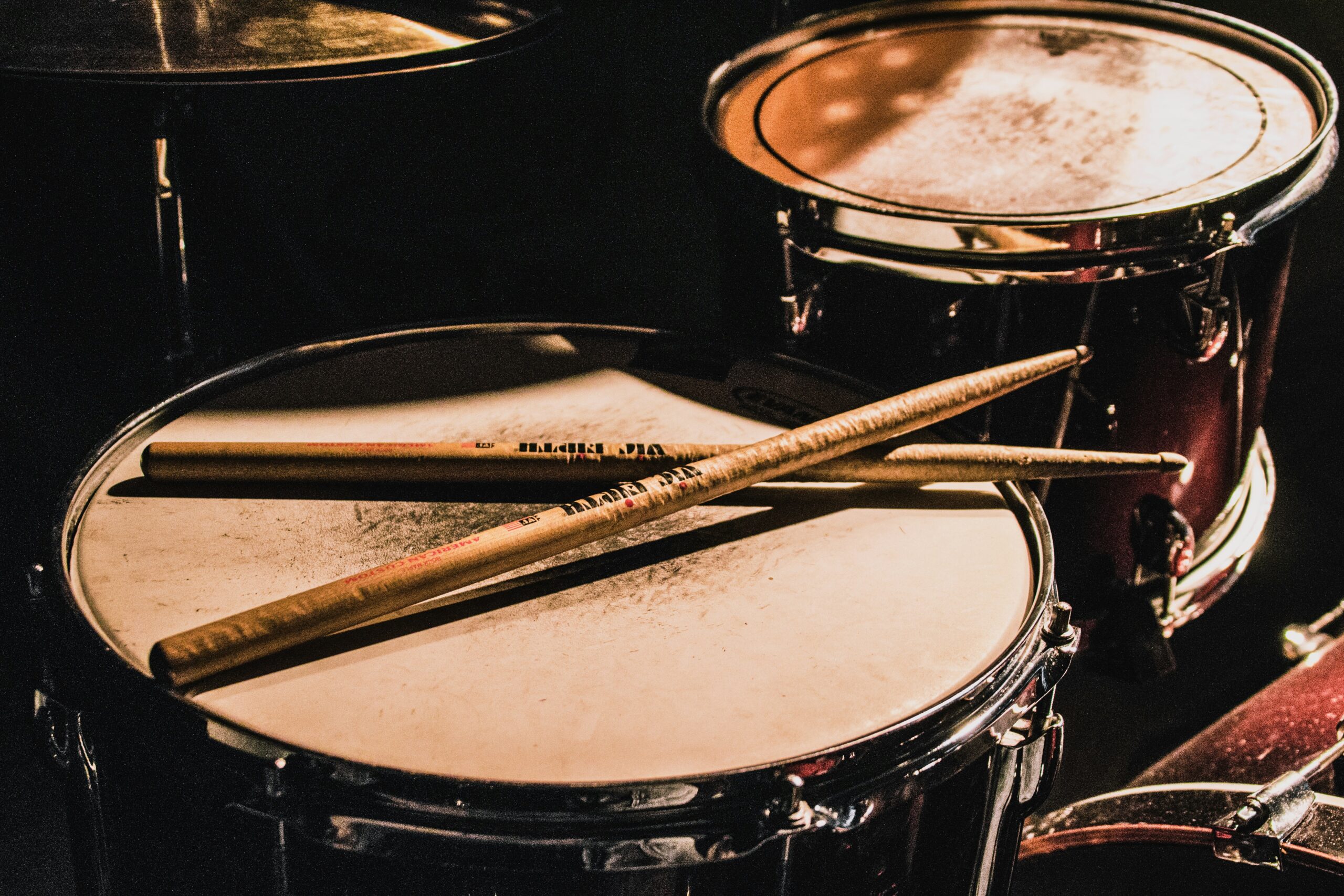Are you on a quest to find the perfect electric guitar but feeling overwhelmed by the endless options? Look no further! In this article, we will discuss the essential factors to consider when choosing an electric guitar that suits your playing style and preferences. From body style and pickups to neck shape and tonal versatility, we will guide you through the exciting world of electric guitars and help you make an informed decision that will elevate your musical journey to new heights. So, grab a cup of coffee, sit back, and let’s embark on this electrifying adventure together!
Consider Your Skill Level
When it comes to choosing the perfect electric guitar, it’s important to consider your skill level. Whether you’re a beginner, intermediate, or advanced player, there are guitars out there that cater to your specific needs and abilities.
Beginner
If you’re just starting out on your guitar journey, it’s best to choose an electric guitar that is easy to play and forgiving on the fingers. Look for guitars with a comfortable neck profile and a low action, as these features will make it easier for you to form chords and play basic techniques.
Some popular electric guitars for beginners include the Fender Squier series, the Epiphone Les Paul Standard, and the Yamaha Pacifica. These guitars offer great quality at an affordable price point, making them perfect for novice players.
Intermediate
As you progress in your guitar playing skills, you may want to upgrade to a more versatile and higher-quality instrument. Intermediate level guitars often offer better tonewoods, improved hardware, and a wider range of features to explore.
Guitars like the Gibson Les Paul Studio, the PRS SE Custom 24, and the Ibanez RG series are excellent choices for intermediate players. These guitars provide a balance between affordability and performance, allowing you to take your playing to the next level.
Advanced
If you’re an advanced player, you likely have a good understanding of your playing style and preferences. At this stage, you may have specific requirements when it comes to tone, playability, and build quality. Consider guitars that are designed for professional use and offer top-notch craftsmanship and components.
High-end guitars from brands like Fender American Professional II series, Gibson Custom Shop, and Music Man Majesty are favorites among advanced players. These guitars are built to deliver exceptional sound, exceptional playability, and are often used by professional musicians on stage and in the studio.
Determine Your Music Genre
Your preferred music genre plays a significant role in choosing the right electric guitar. Different genres have distinct tonal characteristics, and finding a guitar that complements your chosen style can greatly enhance your playing experience.
Rock
Rock music is characterized by its aggressive and powerful sound. To achieve the iconic rock tone, look for electric guitars that offer a solid body construction. Solid body guitars are known for their sustain and ability to handle high-gain distortion, making them ideal for rock guitarists.
Some classic electric guitars used in rock include the Gibson Les Paul, Fender Stratocaster, and the PRS Custom 24. These guitars have been played by numerous rock legends and will help you achieve that energetic and crunchy sound.
Blues
If you’re a fan of blues music, you’ll want an electric guitar that can deliver soulful and expressive tones. Many blues guitarists opt for guitars with a vintage feel and versatile tonal capabilities.
Guitars like the Fender Telecaster, Gibson ES-335, and the Gretsch G5420T are popular choices for blues players. These guitars offer warm and smooth tones, perfect for bending notes and creating that signature bluesy sound.
Jazz
Jazz guitarists require instruments that can produce clean and articulate tones with a wide dynamic range. Hollow body and semi-hollow body electric guitars are commonly used in jazz due to their ability to resonate and produce rich tones.
Popular jazz guitars include the Gibson ES-175, Ibanez Artcore series, and the Epiphone Casino. These guitars offer exceptional playability and beautiful jazz tones that will make your improvisations and chord melody arrangements come to life.
Country
Country music often features bright and twangy guitar tones. To achieve that traditional country sound, you’ll want an electric guitar that can deliver that distinctive twang and shimmer.
Guitars like the Fender Telecaster and the Gretsch G6120 are staples in country music. These guitars offer a unique combination of clarity and warmth, making them perfect for chicken pickin’, double stops, and clean rhythm playing.
Metal
Metal guitarists require guitars that can handle extreme high-gain tones and fast playing techniques. Solid body guitars with humbucker pickups tend to be the go-to choice for metal players due to their ability to produce thick and aggressive tones.
Some popular guitars within the metal community include the ESP LTD EC-1000, Gibson Explorer, and the Ibanez RG series. These guitars are built for speed and heavy riffing, making them must-haves for any aspiring metal guitarist.
Pop
Pop music covers a wide range of styles and tones, so finding the right electric guitar can depend on the specific sub-genre of pop you’re interested in. Generally, versatile guitars that can produce clean and slightly overdriven tones work well in pop music.
Guitars like the Fender Stratocaster, Gibson SG, and the PRS SE Custom 24 are great choices for pop players. These guitars offer a wide range of tonal options and can adapt to different playing styles, making them suitable for various pop music genres.
Decide on Guitar Body Type
The body type of an electric guitar greatly affects its overall tone, weight, and comfort. There are three main types of electric guitar bodies to consider: solid body, semi-hollow body, and hollow body.
Solid Body
Solid body electric guitars are made entirely of solid wood and are the most common type of electric guitar. They are known for their versatility and ability to handle a wide range of musical styles. Solid body guitars are typically lighter, provide excellent sustain, and are less prone to feedback compared to the other body types.
If you’re unsure which body type is ideal for you, starting with a solid body electric guitar is a safe bet. Instruments like the Fender Stratocaster and Gibson Les Paul are classic examples of solid body guitars that have become iconic in the music world.
Semi-Hollow Body
Semi-hollow body electric guitars, also known as “semi-acoustic,” feature a solid center block surrounded by hollow areas. This design provides a unique tonal character, combining the warmth and resonance of a hollow body with the sustain and feedback resistance of a solid body.
Semi-hollow body guitars are favored by players who seek a more rounded and mellow tone. They excel in genres like jazz, blues, and rockabilly. The Gibson ES-335 and Epiphone Dot are well-known examples of semi-hollow body guitars.
Hollow Body
Hollow body electric guitars have a completely hollow body without a solid center block. These guitars produce a big, open, and resonant sound that is perfect for jazz and blues. Due to their large body size and hollow construction, they tend to be more susceptible to feedback at high volumes.
Notable examples of hollow body guitars include the Gibson ES-175 and the Gretsch G5420T. If you’re after a warm and rich tone, and don’t mind the potential feedback challenges, a hollow body guitar might be the perfect fit for you.
Explore Different Pickup Configurations
Pickups are responsible for capturing the vibrations of the strings and transforming them into electrical signals, which are then sent to an amplifier to produce sound. Different pickup configurations offer distinct tonal characteristics, giving you the opportunity to personalize your sound.
Single-Coil Pickups
Single-coil pickups are known for their bright and articulate tones. They produce a clear and crisp sound, which is why they are popular in genres like blues, rock, and country.
The Fender Stratocaster and the Telecaster are renowned for their single-coil pickup configurations. These guitars offer a range of pickup combinations, allowing you to achieve a variety of tones from clean and twangy to fat and punchy.
Humbucker Pickups
Humbucker pickups, also known as dual-coil pickups, were invented to eliminate the hum (hence the name) that can occur with single-coil pickups. Humbuckers produce a thicker and more powerful sound, making them well-suited for genres like rock and metal.
Guitars like the Gibson Les Paul and the PRS Custom 24 come equipped with humbucker pickups. These guitars can deliver high-gain tones with plenty of sustain and a tighter low-end response.
P90 Pickups
P90 pickups offer a middle ground between single-coil and humbucker pickups. They provide a balance of clarity and warmth, making them versatile for various musical styles.
Guitars like the Gibson SG and the Epiphone Casino are known for their P90 pickup configurations. These guitars offer a unique blend of snappy and gritty tones, perfect for players who enjoy a vintage sound with a touch of attitude.
Consider the Neck Profile
The neck profile of an electric guitar refers to the shape of the back of the neck, which greatly affects the feel and playability of the instrument. Choosing the right neck profile that suits your hand size and playing style can make a significant difference in your comfort level while playing.
C-shaped Neck
A C-shaped neck is one of the most common neck profiles found on electric guitars. This profile provides a comfortable grip and is suitable for players who prefer a balanced feel. Many Fender guitars, such as the Stratocaster and Telecaster, feature a C-shaped neck.
If you have average-sized hands or are a beginner looking for a versatile neck profile, the C-shaped neck is a safe and comfortable option.
V-shaped Neck
A V-shaped neck has a distinct V-shaped back, providing more pronounced edges compared to a C-shaped neck. This profile is often preferred by players who have larger hands and want a vintage-inspired feel.
Guitars like the Gibson Les Paul and some Fender Telecaster models offer V-shaped necks. If you appreciate a chunkier grip and a unique vintage feel, a V-shaped neck might be the right choice for you.
U-shaped Neck
A U-shaped neck has a rounded and full profile, offering ample support for the hand and a secure grip. This profile is often favored by players who prefer a substantial and comfortable feel.
Some vintage-style Fender guitars, like the ’50s Stratocaster, have U-shaped necks. If you have larger hands and enjoy a substantial grip while playing, a U-shaped neck may be your best bet.
Thin Neck
For players who prefer a fast and effortless playing experience, a thin neck profile is worth considering. Thin necks typically have a flatter fingerboard radius and a slimmer depth, allowing for faster runs and easier string bending.
Many modern shred guitars, such as those from Ibanez’s RG series, feature thin neck profiles. If you have smaller hands or enjoy playing fast-paced styles like metal or fusion, a thin neck profile can enhance your playing speed and agility.
Evaluate the Guitar’s Scale Length
The scale length of a guitar refers to the length between the nut and the bridge. The scale length can affect the overall feel and tension of the strings, as well as the guitar’s tone and playability.
Short Scale
Short-scale guitars have a shorter string length, resulting in less string tension and a looser feel. They are popular among players with smaller hands or those who prefer a more relaxed playing experience.
Some well-known examples of short-scale guitars include the Gibson SG and the Fender Mustang. These guitars offer a unique feel and can be a great choice if you’re looking for a compact instrument that is comfortable to play.
Medium Scale
Medium-scale guitars are less common than short or long-scale guitars. They provide a balance between the feel of a short scale and the tone of a long scale. Medium-scale guitars are often sought after for their unique tonal characteristics.
While not as widely available as short or long-scale instruments, some boutique guitar makers offer medium-scale options. If you’re looking for a guitar with a distinctive feel and tone, a medium-scale guitar might be worth exploring.
Long Scale
Long-scale guitars have a longer string length, resulting in higher string tension and a tighter feel. They are popular among players who want more clarity and definition, particularly for lower tunings or extended range instruments.
Most electric guitars on the market feature a standard long scale length. Guitars like the Fender Stratocaster, Gibson Les Paul, and Ibanez RG typically offer a long-scale option. If you’re looking for a versatile instrument that is well-suited for various playing styles, a long-scale guitar is a solid choice.
Check the Wood and Build Quality
The wood used in the construction of an electric guitar can greatly impact its overall tone, sustain, and resonance. Additionally, the craftsmanship and build quality play a crucial role in the guitar’s playability and durability.
Tonewood
Different tonewoods have their own unique tonal characteristics. Common tonewoods used in electric guitars include mahogany, maple, alder, ash, and rosewood.
Mahogany is known for providing warm and rich tones, while maple offers bright and snappy tones. Alder and ash are often used for their balanced sound and good sustain. Rosewood is commonly used for fingerboards and adds warmth to the overall tone.
It’s important to note that the combination of tonewoods used in a guitar, as well as other factors such as construction, pickups, and electronics, ultimately shape the instrument’s sound. Consider trying out guitars made from different tonewoods to discover which tonal characteristics resonate with your preferences.
Craftsmanship
The craftsmanship of a guitar greatly affects its playability, durability, and overall quality. Attention to detail in the construction process ensures that the instrument is well-made and free from any potential issues.
When evaluating the craftsmanship of a guitar, look for consistent and clean fretwork, smooth neck joints, properly aligned hardware, and a well-finished body. These factors contribute to an instrument that feels comfortable to play and stands the test of time.
Hardware Quality
The hardware on a guitar, such as the bridge, tuners, and pickups, greatly impacts its overall performance and functionality. High-quality hardware ensures stable tuning, smooth operation, and reliable sound reproduction.
Check the bridge for stability and adjustability, ensuring that it allows for accurate intonation and easy string height adjustment. Tuners should turn smoothly and hold tuning well, while pickups should be securely mounted and provide consistent and clear sound.
While it’s possible to upgrade hardware components down the line, starting with a guitar that has high-quality hardware can save you time and money in the long run.
Set Your Budget
Before diving into the world of electric guitars, it’s important to establish a budget. Electric guitars come in a wide range of price points, and determining how much you’re willing to spend will help narrow down your options.
Entry Level
If you’re a beginner or on a tight budget, entry-level guitars are a great starting point. These guitars are often affordable while still offering decent playability and sound quality.
Many reputable brands offer affordable entry-level guitars, such as the Squier series from Fender, the Epiphone Les Paul Standard, and the Yamaha Pacifica. These guitars provide excellent value for the price and are designed with beginners in mind.
Mid-Range
If you have a bit more to invest in your guitar, mid-range options offer higher-quality components and craftsmanship. These guitars provide a step up in playability, tone, and overall performance.
Guitars like the Gibson Les Paul Studio, PRS SE Custom 24, and the Ibanez RG series fall into the mid-range category. These instruments offer great value for the price and are suitable for intermediate players who are looking to upgrade their gear.
Professional
For advanced players or professionals who demand the highest level of performance and craftsmanship, professional-level guitars are worth considering. These guitars often feature top-of-the-line components, meticulous build quality, and exceptional tonal capabilities.
High-end guitars from brands like Fender American Professional II series, Gibson Custom Shop, and Music Man Majesty are designed for professionals who require the absolute best from their instruments. These guitars offer unmatched playability, tone, and reliability for the most discerning players.
Try Out Different Brands and Models
When it comes to choosing the perfect electric guitar, it’s important to try out as many brands and models as possible. Each brand has its own unique characteristics and offerings, and what works for one player may not necessarily work for another.
Fender
Fender is one of the most iconic and widely recognized electric guitar brands. They offer a range of models, from the legendary Stratocaster and Telecaster to the Jazzmaster and Jaguar. Fender guitars are known for their versatility, comfort, and timeless designs.
Gibson
Gibson is renowned for producing some of the most iconic electric guitars in history. The Gibson Les Paul and SG models are staples in the guitar world, loved for their rich and powerful tones. Gibson guitars are often associated with classic rock, blues, and jazz genres.

Ibanez
Ibanez is a popular choice for players who are into rock, metal, and shred styles. Their RG series and signature models, such as the Steve Vai and Joe Satriani models, are highly regarded for their fast playability and high-performance features.
PRS
PRS guitars offer a blend of vintage-inspired designs and modern craftsmanship. The PRS Custom 24 and the SE series are beloved by players across various genres, including rock, blues, and fusion. PRS guitars are known for their exceptional build quality and versatile tones.
Epiphone
Epiphone is Gibson’s sister brand and provides more affordable alternatives to their higher-end models. Epiphone guitars offer great value for the price and are favored by players who want to capture the Gibson sound without breaking the bank.
Schecter
Schecter guitars are known for their sleek designs, powerful tones, and high-performance features. They excel in genres like metal and hard rock, with models like the Schecter Hellraiser and Blackjack SLS offering top-notch playability and aggressive tones.
Music Man
Music Man guitars are renowned for their craftsmanship, attention to detail, and innovative features. The Music Man Majesty, Steve Morse, and John Petrucci signature models are highly regarded among professional players who seek high-quality instruments with exceptional playability.
Gretsch
Gretsch guitars are known for their retro-inspired designs and warm, twangy tones. Popular models like the Gretsch G5420T and the Duo Jet pay tribute to vintage aesthetics while providing modern versatility for genres like rockabilly, blues, and country.
ESP
ESP guitars are synonymous with heavy metal and are favored by many well-known metal guitarists. Their LTD and signature models, such as the ESP LTD EC-1000 and the James Hetfield Snakebyte, offer aggressive tones, sleek designs, and excellent playability for shredders and metal enthusiasts.
Consider Additional Features and Accessories
When choosing an electric guitar, it’s essential to consider any additional features and accessories that may enhance your playing experience or convenience.
Whammy Bar
A whammy bar, also known as a tremolo arm, allows you to manipulate the pitch of the guitar strings. This feature is commonly found on electric guitars with floating bridge systems, providing expressive capabilities for techniques like dive bombs, vibrato, and subtle pitch shifts.
Locking Tuners
Locking tuners are designed to improve tuning stability by securely locking the strings in place. They are particularly helpful when using a whammy bar or performing aggressive playing techniques that may cause strings to slip out of tune. Locking tuners make string changes easier and quicker as well.
Coil Splitting
Coil splitting is a feature found on guitars with humbucker pickups. It allows you to split the humbucker into single-coil mode, providing additional tonal options. Coil splitting can open up new sonic possibilities by giving you access to crisp and bright single-coil tones.
Built-in Effects
Some electric guitars come equipped with built-in effects, allowing you to experiment with various sounds without the need for additional pedals. These effects can range from simple options like reverb and delay to more specialized effects like chorus, flanger, or even built-in amp models.
Case/Gig Bag
Investing in a case or gig bag is crucial for protecting your electric guitar during transportation and storage. A hardshell case offers the highest level of protection, while a gig bag provides a lighter and more portable option. Consider your needs and the level of protection required when choosing a case or gig bag.
Strap
A guitar strap is essential for comfortable playing, especially when standing up. Choose a strap that is adjustable and provides sufficient support to prevent strain on your shoulders and neck. Additionally, straps with locking mechanisms can offer added security, ensuring that your guitar stays in place during vigorous performances.
Amplifier
An amplifier is a vital component of an electric guitar setup. It amplifies the sound of your guitar and allows you to shape your tone. When choosing an amplifier, consider factors such as wattage, speaker size, and the type of tones you want to achieve. Trying out different amplifiers with your guitar will help you find the right match for your sound.
Effects Pedals
Effects pedals allow you to manipulate and shape your guitar’s sound further. They offer a wide range of effects, including distortion, overdrive, delay, modulation, and more. Explore different pedals to find the ones that best complement your playing style and desired tonal palette.
Choosing the perfect electric guitar is an exciting journey that should be approached with careful consideration. By considering your skill level, preferred music genre, guitar body type, pickup configurations, neck profile, scale length, wood and build quality, budget, and trying out various brands and models, you can find the electric guitar that best suits your needs, preferences, and style of playing. Don’t forget to explore additional features and accessories that can further enhance your overall playing experience. Happy guitar hunting!







